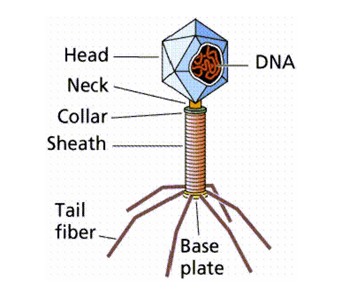We know the verbal communication, in the consultation, need to be concise, easy to understand and useful in delivering the message. On the other hand non-verbal communication is much more complex and, very often, took for granted.
While verbal communication delivers an information, non-verbal provides that information with emotions, concerns, security. Things like facial expressions, eye-contact, gestures, body position, speech rate, hesitancy or interruptions; may help to give our message more credibility, or on the contrary, falsehood. As an example, telling a diagnosis, looking away patients eyes and with pauses, will probably give a sense of dismissal or distrust.
All doctors should acknowledge and use this to their advantage, because it will not only make you more reliable, but knowing how to recognise your patient's “body language” may also be an advantageous and helpful in the examination process.
This article makes an extensive investigation on body language, an importance of time and eye contact in clinics: [1]
As the “globalised internet/computer society” progress, it had come to my attention the lost of the ability to listen in a productive way, maintain the eye contact, and reassure properly.
With this statement, I am not demonizing computers, in fact, I find that fast info to be really practical. Imagine a aged patient, in the 1980s, going to a new nursing home, the nurses will have to ask for a copy of the health history; which will be time consuming and not really ideal, and now you can give access to that info with a “click”. Computers in healthcare work have become remarkably useful.
However, in my short consultation experience, I had noticed how computers and the “extra-inputing-info-time” are creating a kind of alienation on the patient. Looking at the computer, instead of the patient, rushing the conversation in order to have time to input the info, writing while talking, losing the connection patient-doctor, losing the eye contact, losing patient reliability, and blurring the goals of the conversation. A conversation that, in my opinion also has a therapeutic effect on the patient.
I don’t blame the doctors, it might be a product of medical atmosphere nowadays, where physicians get rewards for the number of patients treated and effectiveness; or as well, it might the result of the small time per patient that the hospital try to induce to practicians.
In my personal experience, I have seen how in the rural medicine, the times are less restricted and the patients are more relaxed and confident. Whether in city/hospital medicine the time can go as low as 15 min average per patient in the US or 10 in the UK, what can rush the doctors to force the patients to come to the point, when most times patient want to tell their story.
There are two truths in here; one, the is a lack of time; and two, even if computerised medicine is useful and necessary; the more we introduce the computers in the consultation, the less we look at our patients. So how to seek the balance?, how to address the issue?
First, time issue. In a consultation, we have a duty to give enough attention to our patient so he will feel reassured and we can get enough info for a diagnosis or at least an approximation to it. But how to do that in 15 min when you have to write it also in the computer and at the same time be attentive? Well I am a fan of simplicity so there is a wonderful three questions rule (of course this only for regular patients, because it doesn’t comprise basic information questions): The I.C.E. rule
Ideas, feelings, symptoms and personal life - What do you thing is going on?
Concerns, fears, worries, effects on patient's life - What are you most worried about?
Expectations, patient assumptions on doctor’s job, their involvement - What are you expecting that I can do?
With that you should get considerate idea of patients life and problems, because:
"A pair of kidneys will never come to the physician for diagnosis and treatment. They will be contained within an anxious, fearful, wondering person, asking puzzled questions about an obscure future, weighed down by the responsibilities of a loved family, and with a job to be held, and with bills to be paid." - Dr. Philip Tumulty of Johns Hopkins
Second, the computer/patient balance. I will say to things:
One, the computer actually represents a physical barrier between patient and doctor, so it must be keep outside of the frontal range, and i will suggest a position, on the corner of the desk, in which the angling will be faced slightly to the patient, without reducing the direct view of the doctor. That way the computer is separated and at the same time is incorporated into both the doctor and the patient.
Second, a good doctor should know, apart from the already discuss topic of body language, he should know how to structuring the consultation: listen actively to the patients, postponing the input of the records until the finalization of patients words, recognizing the moments to look and not to look to the records; summarizing understanding how to separate listening, from input, from reading.
If we can educate the new doctors to bear in mind those considerations, we could redirect the medicine into a better patient-doctor communication and, therefore, relationship. Because the way to a better health care and a better health status is going to need the participation of both. Especially in a world where the patients, each time, have more and more information, and the doctors have to assure that they are getting the good information.
Bibliography:
Own personal experience








